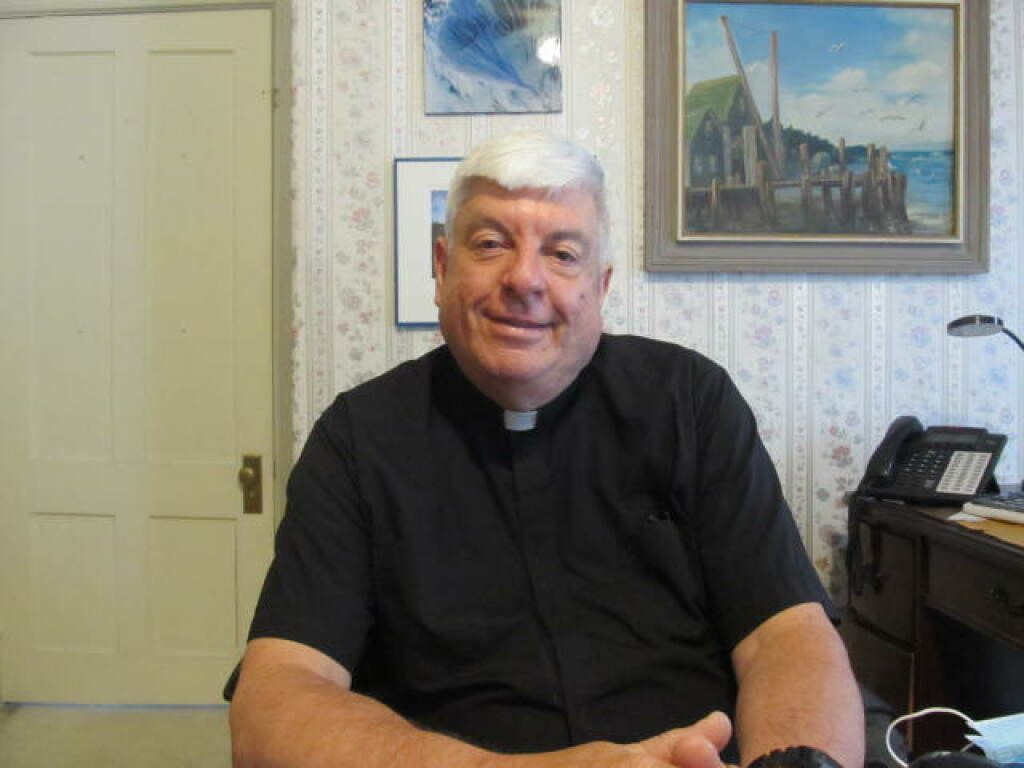 The Joy of Belonging to a People
The Joy of Belonging to a People
Homily for the Third Sunday of Advent
December 13, 2020
Many years ago an episode of Little House on the Prairie took us to the excitement of school children making homemade Christmas gifts for their parents. Because they have been well behaved, and because a serious winter storm is threatening, they are dismissed early. Now, many of these children have to walk a long way, and during their walk the storm turns into a raging blizzard, so that they can hardly see where they are going. When the parents arrive at the school, looking for their children, they learn that they will have to form search parties to find the children. During the search, many are overcome by exhaustion and frostbite. The children are found, but one man dies, having lost the strength to go on. The shadow of suffering and death casts a shadow over the gathering, and many find it difficult to rejoice when one of the families is no longer whole because a husband and father is missing. Charles Ingalls, played by Michael Landon, takes up a Bible, and with tears in his eyes, begins to read:
2 And it came to pass in those days, that there went out a decree from Caesar Augustus that all the world should be taxed.
2 (And this taxing was first made when Cyrenius was governor of Syria.)
3 And all went to be taxed, every one into his own city.
4 And Joseph also went up from Galilee, out of the city of Nazareth, into Judaea, unto the city of David, which is called Bethlehem; (because he was of the house and lineage of David :)
5 To be taxed with Mary his espoused wife, being great with child.
6 And so it was, that, while they were there, the days were accomplished that she should be delivered.
7 And she brought forth her firstborn son, and wrapped him in swaddling clothes, and laid him in a manger; because there was no room for them in the inn.
The people in that schoolhouse, carrying the burden of pain and loss, turned to their founding story—not, in this instance, the Declaration of Independence or the Constitution, but the Bible, and its ancient, immediately familiar account of the birth of Jesus. As many times as they had heard it, the story never grew tiring or old. It was the story that on that dark, difficult Christmas day, gave them hope and comfort.
Today we celebrate what was known in former times by the Latin title, Gaudete Sunday. Gaudete is a plural command, intended for all the people: rejoice! We have heard in our first reading: “I rejoice heartily in the Lord, in my God is the joy of my soul.” And in our second reading Paul advises: “Rejoice always. Pray without ceasing. In all circumstances give thanks, for this is the will of God for you in Christ Jesus.”
There is a difference between the words “joy” and “happiness”. Happiness can be described as an emotion, a response to the feelings of the moment: contentment, good luck, prosperity or good fortune. Joy is more properly related to a state of one’s being, a deeper sense that all is well beneath the changing ups and downs of happiness. For us as Christians, joy can be experienced as a deep appreciation of the death and resurrection of Jesus, and the promise of eternal life underneath any of our feelings of the moment.
In a recent book entitled “Let Us Dream,” Pope Francis says this about our current situation: “Today our peoples lack joy: there is a sadness that no pleasure or distraction can relieve. As long as one part of humanity is suffering the most abject misery, how can any of us be joyful? But at the same time we see an awakening, a call for change, a sense that what has been is not all there is to come. The joy of the Lord is their strength, but they know they have a road to go before they can eat, drink, and rejoice in the new way of living” (page 45). The joy of the Lord is our strength that can keep us from becoming paralyzed by fear and sadness!
Pope Francis further analyzes our problem by stating, “If you were to ask me what is one of the ways Christianity has gone astray, I would not hesitate: it is to forget that we belong to a people” (page 106).
The pandemic we are in has revealed that we are in this together, that no one saves himself or herself. We need others to minister to the sick, provide needed services, offer comfort and support, organize a response, tell us how to keep safe, do research, and develop and then distribute a vaccine.
The scene from Little House on the Prairie shows clearly how much that little community needed each other in a crisis. It also reminds us of how an ultimate joy can be found, even in the midst of a crisis: hearing our story of the birth of Jesus gives us the joy of knowing that we are a part of God’s people. Our role is played out in serving, in being there for each other’s joys and sorrows, in reminding each other the reason for hope in a time of despair, the reason to hold onto the light in a time of darkness.
To say, “I have spirituality, I don’t need the church”—that tosses out the joy of belonging to a people. The Christmas story is not a private possession; it is good news to be shared, a story to be told, a story to be acted out by children when you don’t have to stay six feet apart, a story that leads to service, forgiveness, the overcoming of barriers, a story that brings joy and hope even in a time of pandemic.
This year we have the opportunity to experience Christmas at a deeper level than ever before. The birth of Jesus means that our God has come to save us—to save us all, as a people, as brothers and sisters, as one human family with one God and Father. And so, let us dig deep into the heart of our faith, and rejoice that our God comes to save us!
You might also like
Father's Homilies




